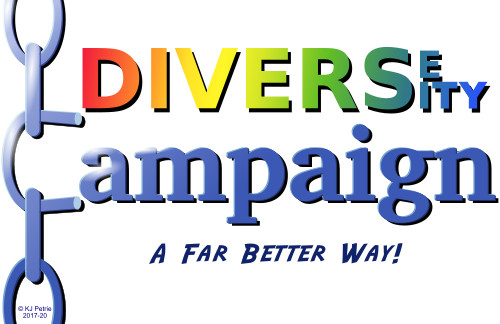Opinion
19th March 2023
Lineker when the dust settles
The recent row over Gary Lineker raises interesting issues from the viewpoint of advocates of freedom and true diversity. These boil down to two principal features.
The first is how well the row illustrates the way an employer or, in this case, a hiring contractor, seems to assume an entitlement to control someone’s life outside the workplace. Why should the BBC think it should control what a private individual thinks or says in a personal capacity? Did Mr Lineker say anything controversial in the course of his duties at the broadcaster? Why would his personal views be considered to express or taint those of an organisation with which he has one specific connection. If I buy something from a particular shop, am I thereby entitled to dictate the expressed views of the shopkeeper? Why then would the BBC be entitled to dictate those of a freelance contractor hired to present a programme?
The argument seems to be that Mr Lineker’s prominence somehow makes him a spokesman for the organisation but that is surely foolish. Why would anyone think a man who works for an organisation speaks outside that sphere for anyone other than himself? Does the BBC think people are too stupid to know the difference? It appears so. He might be the BBC’s most highly paid presenter, but he did not make his comments while presenting the show. He was not at work at the time. How could his comments be confused with the Corporation’s view and thus compromise its impartiality? At that level, the issue is not one of impartiality but of control. If working for the BBC means a person should be politically neutered when outside it, perhaps no one should work for the BBC, for political participation is the very stuff of public life.
I have myself complained when a BBC presenter seemed to act contrary to the Public Interest when functioning as the voice of the BBC (see Opinion, 9th April 2020 and News, 9th April 2020), and that is vital if the broadcaster’s reputation and impartiality are to be preserved, but the behaviour of a presenter off-air through a personal communication channel unconnected with the BBC is a different matter. One is the voice of the public broadcaster, speaking in a supposedly unbiased capacity on behalf of truth as a universal concept, and the other isn’t. The two should not be confused because difference is difference and should be respected as such.
The second question might be to see what could happen to Wokeism when the biter is bitten, for the manner of Mr Lineker’s tweet was very much in the style of Wokeist confusion itself, as was the objection to it.
In essence, he argued Suella Braverman’s language about illegal migrants was reminiscent of that used in Nazi Germany to promote their genocidal policies. Now whether it was or wasn’t is a personal opinion, since different people will have different levels of awareness of that language, and different ideas about what reminds them if they are aware. However, by making the comparison he was employing a typical Wokeist attack on opposition — association with the far right. For Wokeists often try to minimise their own extremism by claiming even centrist opponents are far-right. The centre-left SDP is far right according to some Wokeists (See William Clouston’s experience when speaking at York University last November)! Now let me be clear — I am not suggesting Gary Lineker is an extremist — indeed, I have some sympathy for his analysis on this occasion — the Nazis, dangerous though they were, would not have portrayed themselves as being unreasonable and their propaganda would naturally try to rationalise their policies by vilifying those they chose to see as enemies. If Ms Braverman’s language could be seen as vilifying those in the boats, some might indeed find that reminiscent of 1930s Nazi propaganda. What I am saying is that his condemnation, in associating Ms Braverman’s words with those of fascists, could be seen as attractive to Wokeist types.
Those who objected to Mr Lineker’s comments were, as I am not the first to observe, blurring the distinction between historical words and actions. No one actually suggested the government’s deportation policy (however flawed) was equivalent to the Nazi genocide. To blur the distinction between what he actually said and what they wanted to be able to criticise is also a common unfortunate tactic. This created a classic clash of two misrepresentations, designed to cause trouble where none was required, just as a campaigning technique. That is not unusual these days, but it is regrettable.
It also seems many of those defending Mr Lineker in the name of free speech were generally from a more pseudo-liberal position. Some commentators (eg Tom Slater writing in Spiked) might regard this with a high degree of cynicism, and they might be right to do so. On the other hand, it is also possible those defenders, seeing their own tactics used against one of their own, have started to see how goose and gander can share the same sauce. If so, that could be a sign of hope, of the realisation that Free Speech is worth fighting for and implies other views should be heard. I would like to hope the latter is a valid basis for starting to rebuild public life, but in order to do so it needs to be nurtured and encouraged, and that is better done by welcoming the potential change of perspective than by jeering at the apparent irony some might prefer to highlight.
Let us live in hope, not anger.

